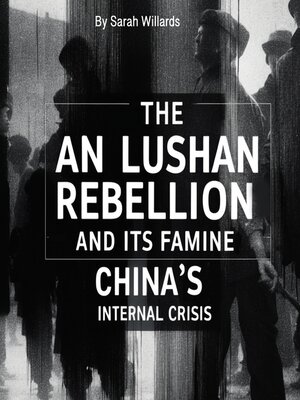The An Lushan Rebellion and Its Famine
audiobook (Unabridged) ∣ China's Internal Crisis
By Sarah Willards

Sign up to save your library
With an OverDrive account, you can save your favorite libraries for at-a-glance information about availability. Find out more about OverDrive accounts.
Find this title in Libby, the library reading app by OverDrive.



Search for a digital library with this title
Title found at these libraries:
| Library Name | Distance |
|---|---|
| Loading... |
The An Lushan Rebellion, one of the most significant uprisings in Chinese history, did not emerge overnight. The roots of the rebellion can be traced back to the political, social, and military tensions that plagued the Tang Dynasty in the mid-8th century. The Tang Empire, once at its peak, was experiencing a slow but steady decline, marked by corruption, factionalism, and a weakening central authority. These conditions set the stage for the rise of regional military leaders like An Lushan.
An Lushan was a general of mixed Sogdian and Turkish descent, originally serving in the Tang military. His talents as a military strategist, combined with his ability to garner the loyalty of his troops, made him a powerful figure. He rose through the ranks of the imperial court, earning favor from Emperor Xuanzong. Initially, An Lushan was appointed to oversee the northern frontier, where he successfully defended the empire from external threats. However, his growing influence, both militarily and politically, began to stir unease at the imperial court.
The Tang Dynasty's reliance on powerful military governors, known as jiedushi, to maintain order in the frontier regions allowed these individuals to amass significant power. This decentralization of authority undermined the emperor's control over the empire and contributed to widespread corruption. The power struggles within the court and the lavish spending of Emperor Xuanzong's court, especially during his later years, further distanced the ruling elite from the needs of the common people.







